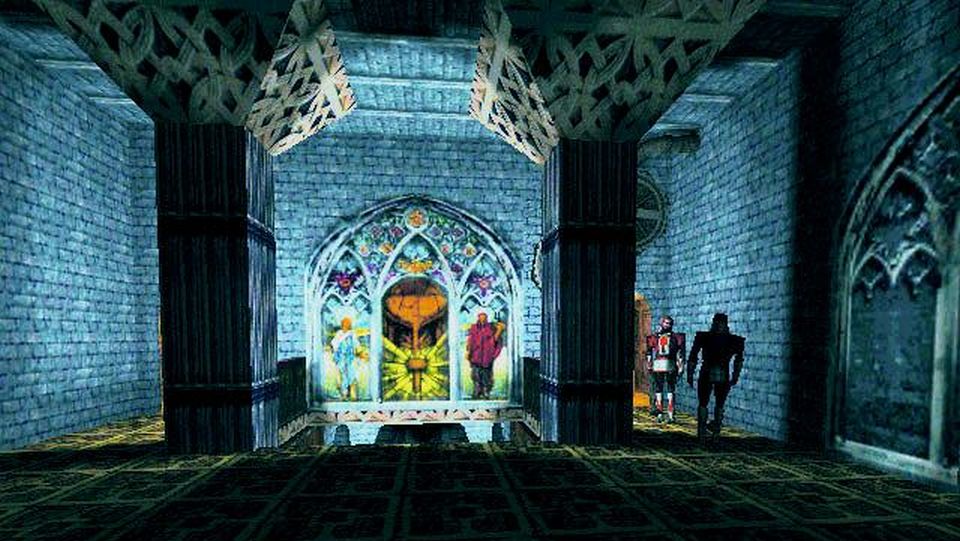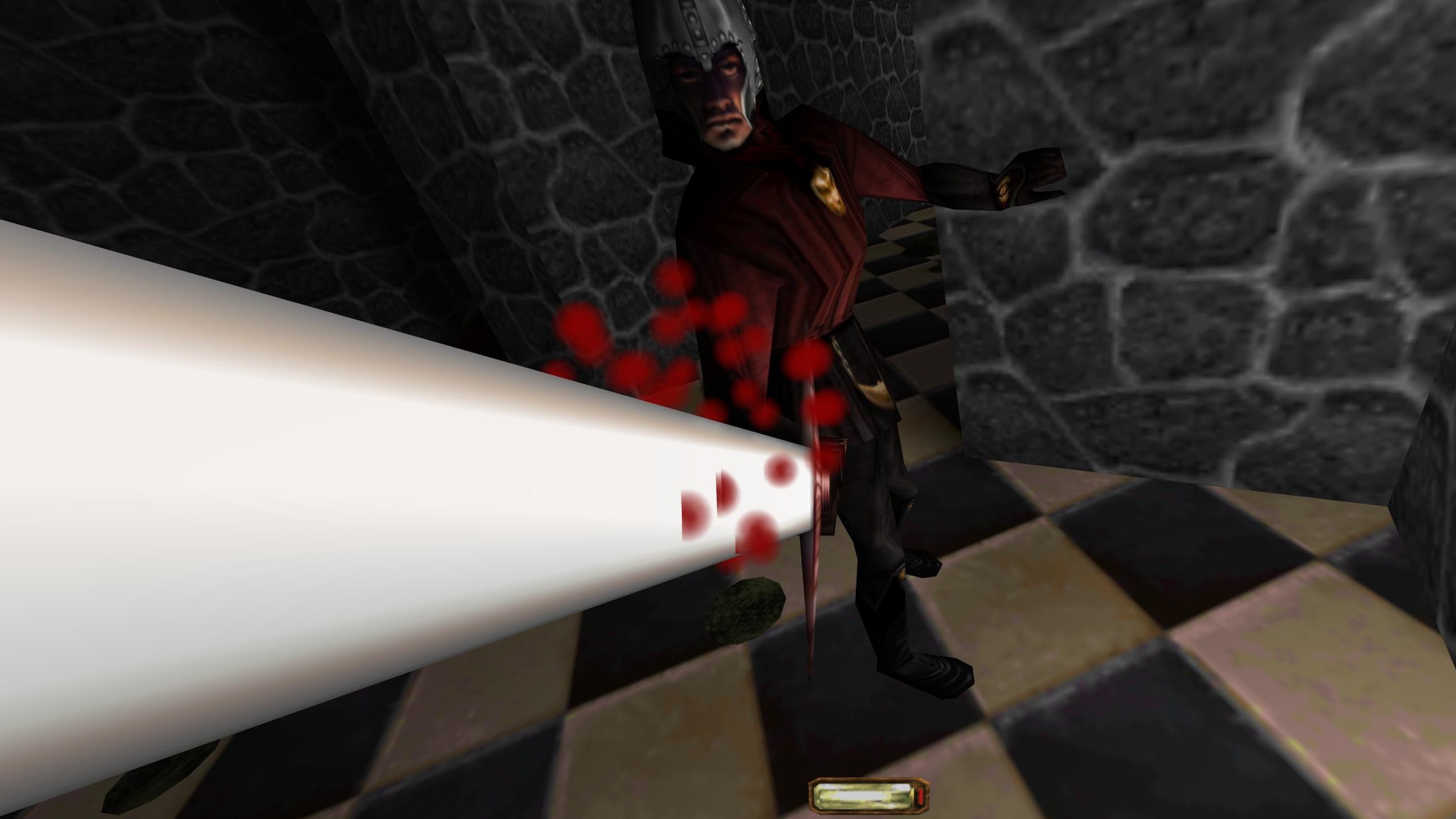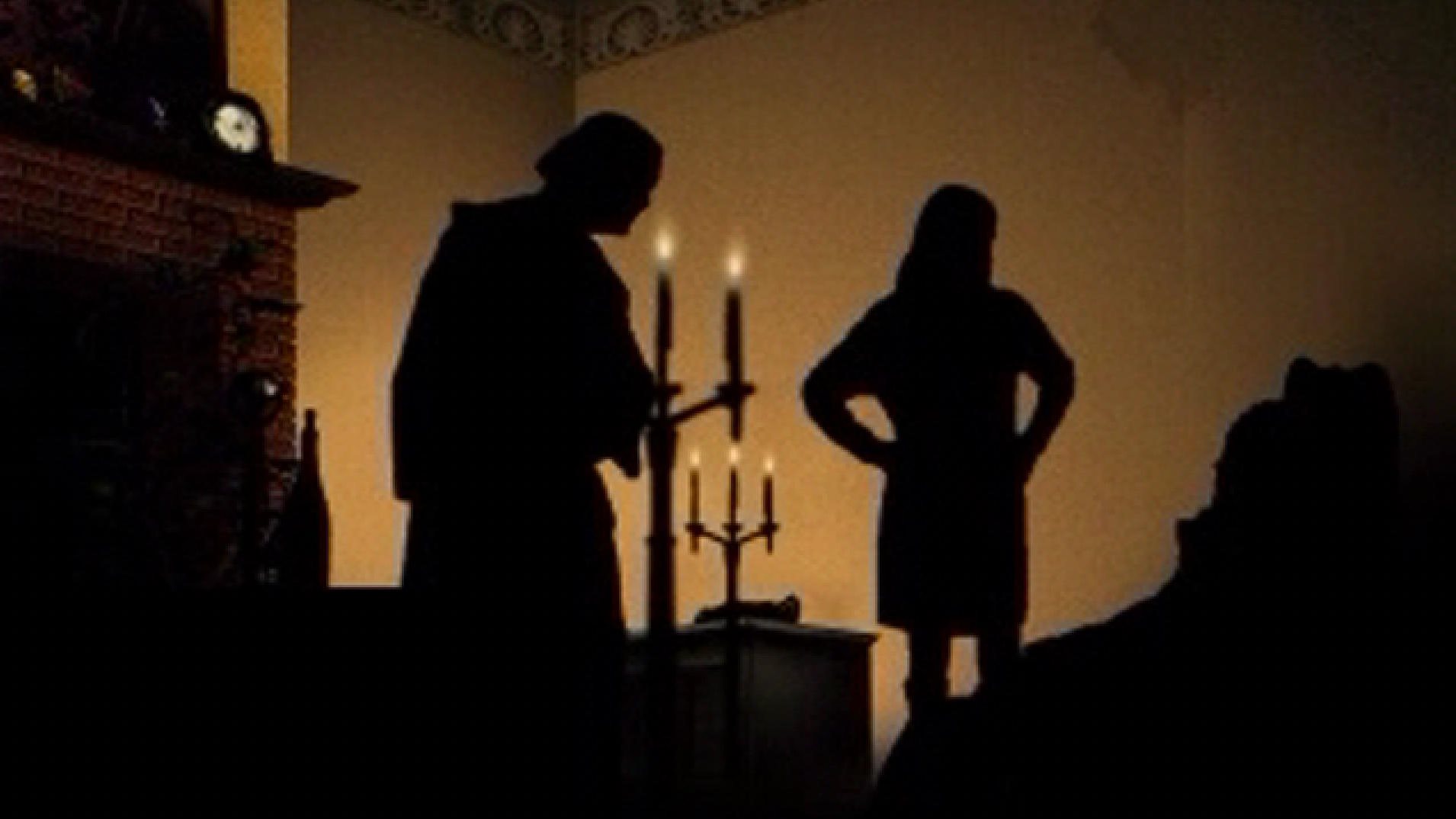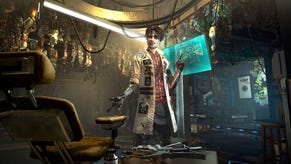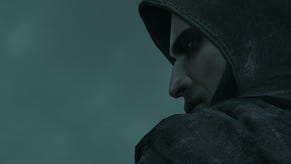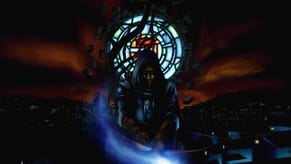Thief: The Dark Project is 20 years old, and that makes me feel the following emotions
By the ghost of games journalism past
In 2007, I was in a bar in Soho. I was waiting to order a drink. Two guys in their early twenties were standing next to me. They were gamers. One was talking loudly about an old guy he had befriended. “He bought a Commodore 64 the day it came out” he said, with clear wonder and delight, “I have a friend… from back in time.”
Hi. I’m Kieron Gillen. Today, I will be your friend from back in time.
I’m old. I reviewed Thief when I was 23. You can do math. You play PC games. You’re likely good at math, unless you’re John Walker, who is bad at math AND healing.
When Graham asked me to write this, he asked “is there anything else you have to say about Thief?” The implied story is that, over the years, I’ve said a lot about Thief and games of a similar aesthetic and made them central to my journey as a player of games and critic. I reviewed them all. I previewed them all. I interviewed the developers. I got a developer to codify his theories in an endless e-mail discussion for an interview for a feature. He proceeded to put that theory into practice in The Cradle in the third game. Which I was then the first person to play and review. And then I wrote ten pages about that single level.
Is there anything left to say? It would be easy to just do the usual hagiography or trot out the usual stories about its troubled development. Yes, it is clearly the single most influential stealth game of all time, as shown by how its biggest rivals all swallowed its ideas. Yes, it’s clearly a triumph of atmosphere and sonic design – just try the soundtrack or the Nine-inch-nails-does-steampunk of the briefings. Yes, it’s the equal-and-opposite to Deus Ex’s maximalism, in terms of stripping back the Immersive Sim (a phrase not yet existent) to a few core axes which it explored determinedly. Yes, the zombies were mostly nob. And yes, in a sort-of inspirational story that cheers all troubled developers, it was a total mess right up to release.
But there is one thing I haven’t touched on, which I feel may be of use.
Just over a decade ago, I co-founded this site. Just under a decade before that, I was hired by PC Gamer. A decade before that something else happened, probably. A decade before that Space Invaders was released.
Writing about Thief: the Dark Project in 2018 is the same as writing about Space Invaders in 1998.
While a retrospective explaining why Space Invaders was a nifty game is one thing, what I’d really like to hear is someone talk about the initial weird thrill of seeing that. How did they conceptualise this game? What did it mean compared to everything around it? The oral history part, the part of what it was like being there. In other words, you may know about Thief, but many of you have no idea what it was like to be a gamer in 1998. What it was like, and where that got us.
In October 1998, I was hired as a staff writer on PC Gamer. I billed myself as “Expert in everything ever” in my bio, an act of performative arrogance but also a tactic to avoid being shoe-horned into writing about the same genre twice in a row, as boredom is death. That I was an “Expert in everything ever” was as big a lie as I’ve ever told. I knew games and games criticism back to front, sure, but there was one relevant huge gaping hole.
I had only owned a PC for a couple of months. I knew nothing. I was faking it, lurking in the shadows, fearfully heading into the light which could expose my ignorance for only scant seconds at a time…
Thief: the Dark Project was the first game I reviewed for PC Gamer.
(Another lie: it was my first published review. My first review was some 280 word rendered adventure review which was total bobbins, but Print The Myth.)
So playing it, trying to understand and contextualise it for the readers was a battle. I was someone who understood PC games in the widest sense, but not the specific. I had never played Ultima Underworlds properly – I just knew enough to fake talking about the whole lineage. Yes, it seemed the Edge subscription was good for something other than making me growl.
But when you’re cut away from everything else, you’re left with what’s in front of you. As a critic (or anyone) if you don’t know anything, listen to yourself, and how you feel and write about that. And Thief (aside from the dip of the early level of Down In the Bonehoard) was just one of the most instantly startling things I’d ever seen. I wouldn’t shut up about it.
This is very me. I like to share. Any time I get a chance, I drag friends to see an Asteroids in the original cabinet, just to see the Vector screen with its impossible brightness – tech we simply don’t use any more. As such, its novelty is always apparent, even all these decades later. Its eye-searing lines. It’s like nothing else.
You can’t really get that with Thief. You have to get past the fact it looks twenty years out of date (and looked out of date even upon release) but it’s still playable now. Give it a shot. In some ways, it’s even more striking in its choices of what it includes and what it doesn’t, and how little it guides the players at all. Here are some systems. Here is a space. Here is some atmospheric grace notes. Go.
I loved it. However, realising that this approach was the exception rather than norm crept up on me as sneakily as Garrett himself. That annoyed me. Something should be done about that…
The first time PCG readers met me was me introducing one of the core iconic games of my career. It was like if Lester Bangs’ first review was Lou Reed.
I write that and smile, and would have at the time, while clearly meaning every single word. I used to say I was the fourth best games journalist on the planet. This made me worse than anyone who thought they were the best games journalist on the planet, because if you think you’re best, you’re merely deluded. If you think you’re fourth best, it implies you have a list and know exactly which three people you need to kill to become number one.
Put it like this: a year or so later, I printed a T-shirt which said KILLBADWRITERS on the front. I wore it and made people seethe. I lived to provoke – by which, I mean, annoy. To quote Baphomet from WicDiv, one of my most annoying characters, some people deserve to be annoyed. The self-bloated self-satisfaction of the industry and the accepted norms of “Good” bugged me. With Thief, I realised I had a corner to fight, and I came out swinging.
In 1998, Thief was the underdog. It did much better commercially than legend has it (Looking Glass’ closure was about prior financial problems), but it was still against the majority of what was getting those 10/10s.
We had Metal Gear Solid somehow answering the question “what does Pac-man really need?” with “tedious, over-written cutscenes”. Looming on the horizon, Final Fantasy VIII’s unique approached to being a horror game, in terms of realising that you had to fit through these sequences any time you did a fancy attack. Hell, even much-loved Zelda: Ocarina of Time thought we were all terribly interested in waiting more than 10 seconds for the fucking elf to open the fucking box and get out another fucking rupee.
Yes, in 1998-2003, Kieron Gillen was in the business of tearing meaty chunks out of Sacred Cow and eating them raw.
Anyway, compared to all of that, Thief was Defender. I knew my side.
“Sides”.
I look back at that perspective, and how I thought it, and sigh. I’m embarrassed at where that got us. My critical position then was so tightly bound that while loving rhythm action games I refused to classify them as a videogame due to my own definition (something to do with systems interacting in non-predictable ways - ignore it, it’s nonsense). I was caught in the idea of having to champion things – critic as crusader.
I mean, I know part of me would be pleased. Metal Gear Solid V was a triumph, but I couldn’t help but read it as “Thief and GTA were right all along.” It’s less a game design, more a white flag.
But winning is a problem for self-identified losers like me. It’s easy to be in opposition.
In the early 00s, as Looking Glass closed (bad) and their ideas started appearing in various forms in other games (good) I found myself watching the Looking Glass fanbase, with increasing sadness. The games infused with different, often smaller, versions of these ideas were just rejected by them. The thrill of Thief for me was the thrill of the new and the freeing, how these narrative and mechanic strands were woven so tightly. As in, it was my futurism, it pushed the medium in ways which promised novel, unprecedented things (rather than the old, just with increasing pretty). I increasingly realised, no, that wasn’t it at all. Thief was just a game they liked, and they wanted the old with increasing pretty.
Which gets me thinking about evolutionary theory and local optima, because I’m me. Socially, we tend to think of natural selection just basically pushing onwards, with things getting better and better. But sometimes it’s not like that - sometimes you get a stable mutation, which works really well, and while there are things which would work better, to actually reach that point, you have to become not-as-good. Let’s say, you develop a type of wing with a certain bone structure. There’s a different wing which would fly in a niftier fashion, but any bone structure changes in that sub-optimum wing means it can no longer fly at all. So you stay at the less perfect wing because evolutionary pressure keeps it there. You’re this peak (good), surrounded by two valleys (not as good), while the two bigger peaks to either side (better than good) may as well be on the moon.
I find myself thinking that Thief, circa 98, was a local optimum, and part of PC games theory (and tastes) just got stuck there, not willing to make march across the valley to get to a higher peak, because to do so would cause such growing pains.
That systemic play became more dominant across the years, the more I saw versions of my own championing of a form harden into something actively prescriptive and hurtful: “That’s not a game.” It’s one thing to take that stance in 1998, when you were fighting culturally uphill. If you’re on the hill in 2018, using the physics engine to roll rocks downhill on people exploring another tradition, it’s another. I am ashamed.
This has been pretty depressing, which is appropriate. When I was younger, I was angry, as I understood some things very well and others not at all. Now, I am sad, because I understand a lot more and see that my angry solutions were born of something else. Put it like this: it turns out that PC gaming wasn’t the only thing I was ignorant about in 1998.
But we can’t let regrets annihilate the past. While some ideas calcified into dogma in some of our heads, gaming carried ever onwards and its creators in the last twenty years have left me grinning in wonder. In 1998, I thought Thief was how games should be. The last twenty years showed me that any solution to a question of what an art form “should” be is nonsense. Games should be anything, for anyone, in as many ways as people can comprehend. Any fanaticism only makes games smaller.
Frankly, I should have known that then. You don’t have to choose between Monkey Island and Defender, Deus Ex Machina and Deus Ex, Head over Heels or your head over your heart. That the developers who followed even Thief’s lineage seemed aware of it – that the walking simulator’s popularisation with Gone Home was born from developers entirely in Thief’s lineage is not a footnote, or an irony – but another facet of the radicalism inherent in Thief. People could have gone anywhere from Thief, and people did. The immersive sim was about unpredicted interactions and possibilities emerging from a system. In fact, viewed across twenty years, I see that on the design front – all these games, directly or indirectly, emerging from that haiku of a stealth game. I’m grateful for everything it’s given me, and the medium. Hail to the Thief.
I also still have a crush on Viktoria, but we can save that for the Metal Age retrospective next year.




